For me as for many others from India, “Pickles is not a food, it’s an emotion”. I have an unconditional love for pickles, specially the Gujarati pickles.
The great food historian, the late KT Achaya says pickles in India became innovative and highly evolved,many centuries ago. We Indians believe in the maxim, “Atithi Devo Bhava”, the guest is divine, and no guest visiting our home should go without food. The bottles of pickles are an important part of this hospitable culture as it adds flavour to a simple home-cooked meal for an unexpected guest. If there are no special dishes made on a particular day, we can fall back on what is pickled in the house. Called Achar in India and Athanu in Gujarat, it is difficult to imagine a meal without pickles. The word Achar is derived from Persian language, suggesting pickles came to India from western Asia.
Gujarati cuisine is incomplete without its range of pickles. In the state of Gujarat where the heat of summer makes it difficult to grow and store many fruits and vegetables, pickling is a great way to preserve them and enjoy their flavour for months. Mangoes, lemons, vegetables, chillies, gunda, dry dates and carrots are preserved in Gujarati homes in mustard oil (or in some houses other oils like peanut or sing tel) with salt and pepper. Many pickles have salt, fenugreek, jaggery and mustard oil – fenugreek and jiggery not only offer a contrast of flavour but also a nutritional balance. The jaggery gives energy while the fenugreek has protein, minerals and fibre with digestive properties. Indian pickles are usually Sunshine pickles that are actually processed by placing the jars in the sun for a number of days. The pickled ingredients that are matured by exposing to sunlight for a week or two have an extra layer of taste. So the sunshine is an important element of the Indian pickle in amplifying the taste of the ingredients.
Mustard oil is the backbone of Gujarati pickles and no artificial preservatives are used.
Some of my favourite pickles are:
- Raw mangos, dry dates and jaggery achar – this appeals to my sweet tooth
- Shredded raw mango pickle.
- Mix karhore pickle.
- Chick Peas and dry fenugreek pickle
- Rajma and Soyabean pickle
- Whole garlic -cloves pickle
- Fragrant Maryjack mango pickle
- Fried mango pickle
- Lemon pickle
- Bamboo pickle
Gujaratis prepare three types of pickles:
- Pickles with a long shelf life.
- Instant or fresh pickles that have a short lifespan and are consumed in two to three days.
- Pickles with dried ingredients.
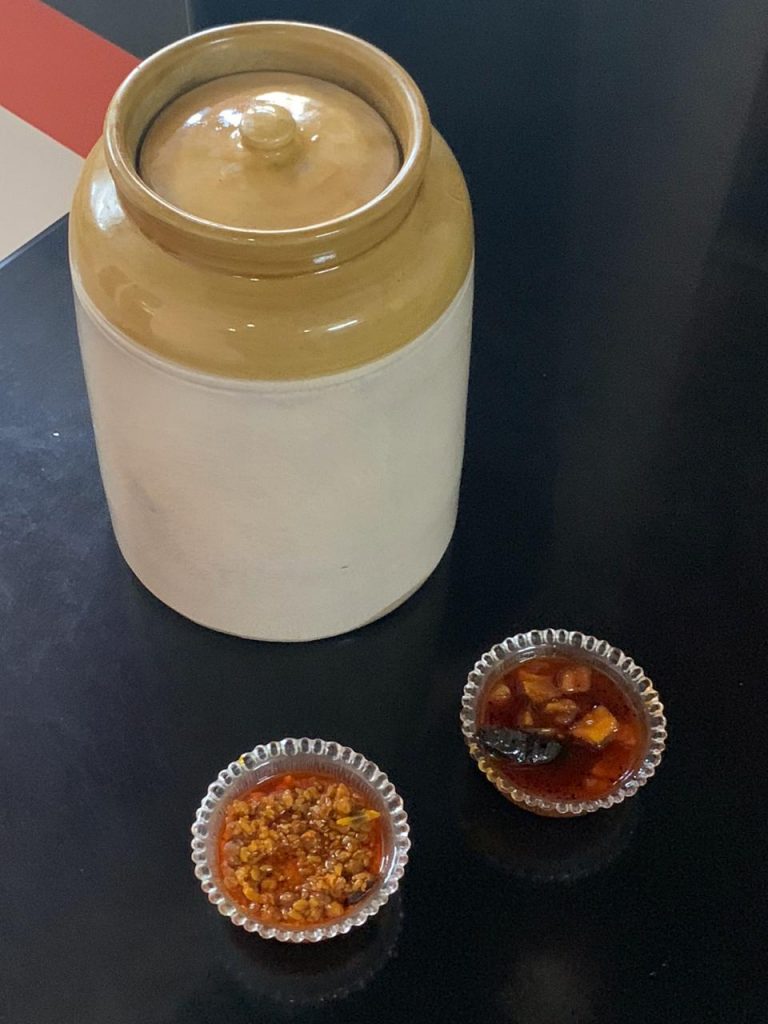
Come summer and mangoes are in season – there are six distinctive mango varieties that grow in Gujarat, each of w hich is used to make `instant pickle’. The mango pickle is eaten fresh within two or three days of pickling the mangos. These pickles do not need to have a long shelf life. Gujaratis make salted mango pickle spiced with fenugreek seeds and red chili powder; hot and sweet mango pickle made with jaggery, dry dates, mustard and red chili powder; and hot and sweet mango pickle made with sugar syrup, cumin and chili powder.Murabba and Chunda are sweet mango pickles that probably evolved for the Gujarati traders and travelers (Gujaratis are great pilgrims and tourists) to be had with nashto (snacks), thepla or khakra.
One of Gujarat’s most sought after pickle is the one made with Jaggery (gud), Dry Dates (kharek) and Raw mango (keri). Cashew, fennel and black pepper make this sweet pickle even more delightful and flavourful. In Andhra, they use red chili with raw mango to make a pungent pickle.
The elders in my family like my grandmothers, mother and mother-in-law make achar with approximate measures and quantities of ingredients in it. Thus in each house, though the basic recipe is the same, the pickles turnout with variations in flavour because of the difference in quantities of ingredients.
My favourite pickle pairings:
- Sweet mango pickle with Roti.
- Chhunda with Thepla.
- Salty mung khichdi with the brine or gravy of any sweet or sour pickle.
- Khakhara with any pickle.
- Masala puri with any pickle.
On a summer evening we like a light khichdi with sweet or sour pickles for dinner at home.
Gol Keri Sweet Pickle
Gol is jaggery and keri is raw mango. This is my childhood favorite and I love the way my mother makes it. This pickle adds taste, flavour and texture to the Gujarati summer meal.
Ingredients:
Raw Mango – 500 gm
Jaggery – 500 gm
Spicy Fenugreek Masala – 150 Gm
Mustard Oil – 70 Gm
Whole Red Chili – 10 to 15 Pieces
Dry Dates – 200 Gm
Fennel Seeds – 1 Table Spoon
Black Pepper (Whole) – 1 Table Spoon
Casew – 2 Table Spoon
Turmeric – to taste
Salt – to taste
How To Prepare:
- Cut the mangos into small pieces or cubes.
- Sprinkle salt and turmeric on the bowl.
- Keep the mangos for 12 hours so that the moisture is lost, the reason this pickle has a long shelf life.
- Add water to the mango and then wrap them in muslin cloth for a couple of hours.
- Sift the mango to a bowl, then add dates, fenugreek (methi) masala, chillies, cashew, fennel seeds, whole black pepper and jaggery.
- Heat oil and then pour the hot oil on the contents of the bowl. Mix the ingredients in the bowl thoroughly.
- Keep the ingredients mixture for eight to ten days, during which time you have to keep mixing at intervals.
- The matured mixture can be stored in a container.
- Serve spoonfuls of this awesome Gol Keri Sweet Pickle at any meal. It pairs well with roti, thepla, khichdi, rice or any main dish.


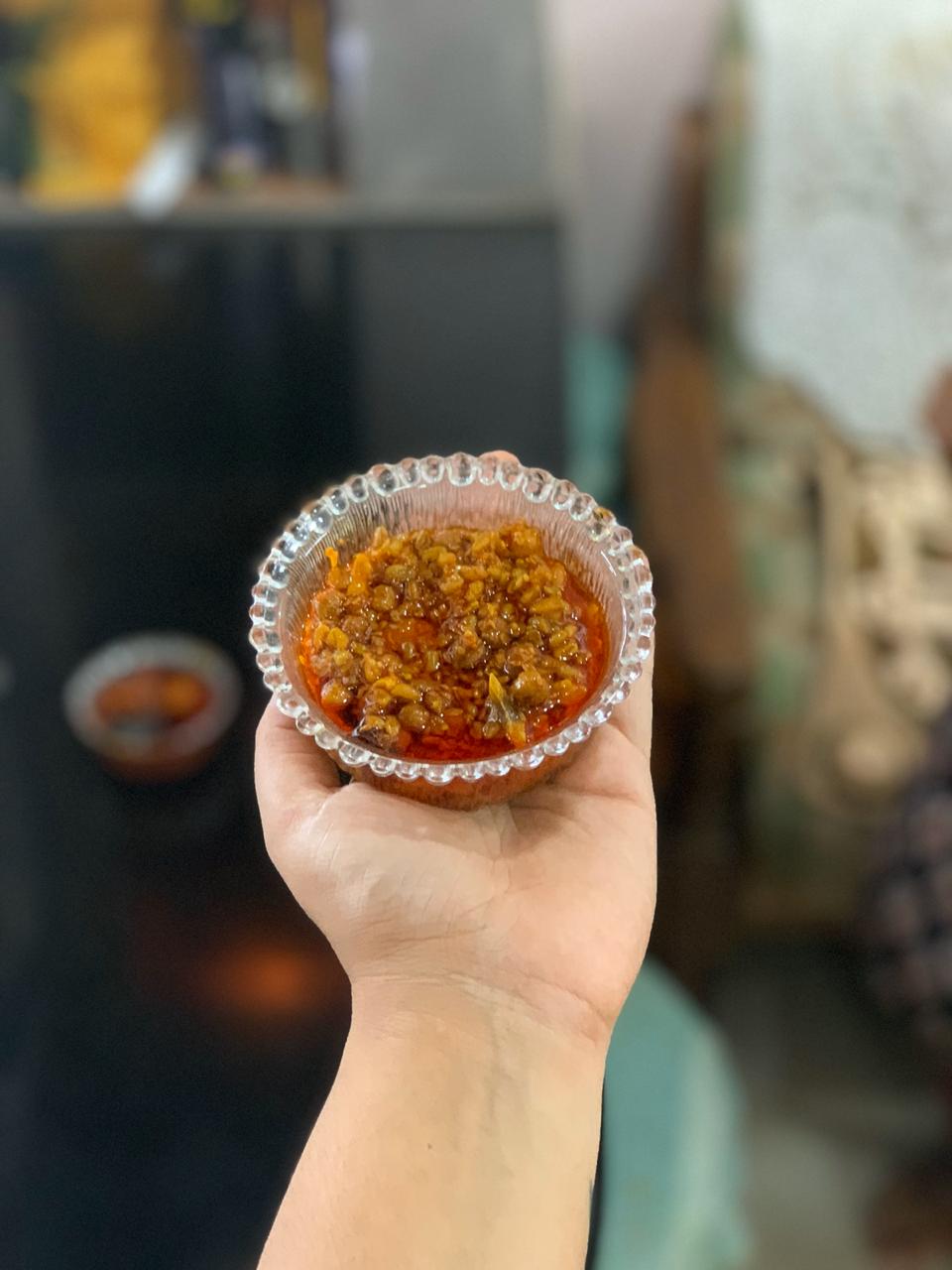
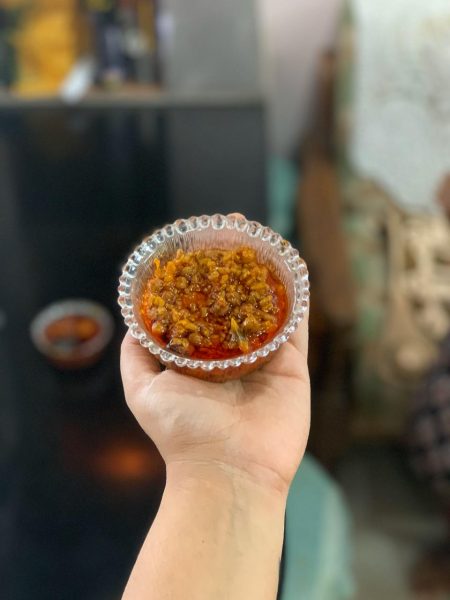
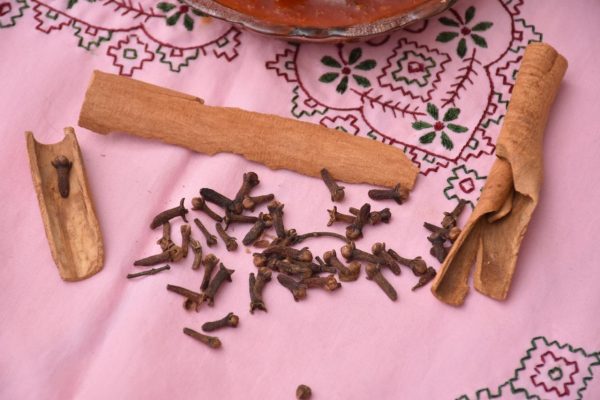
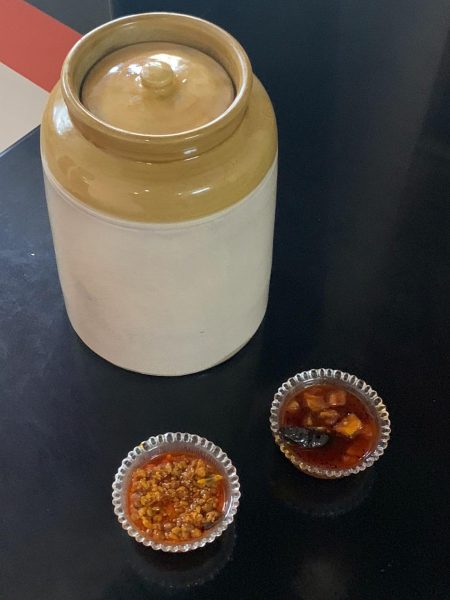
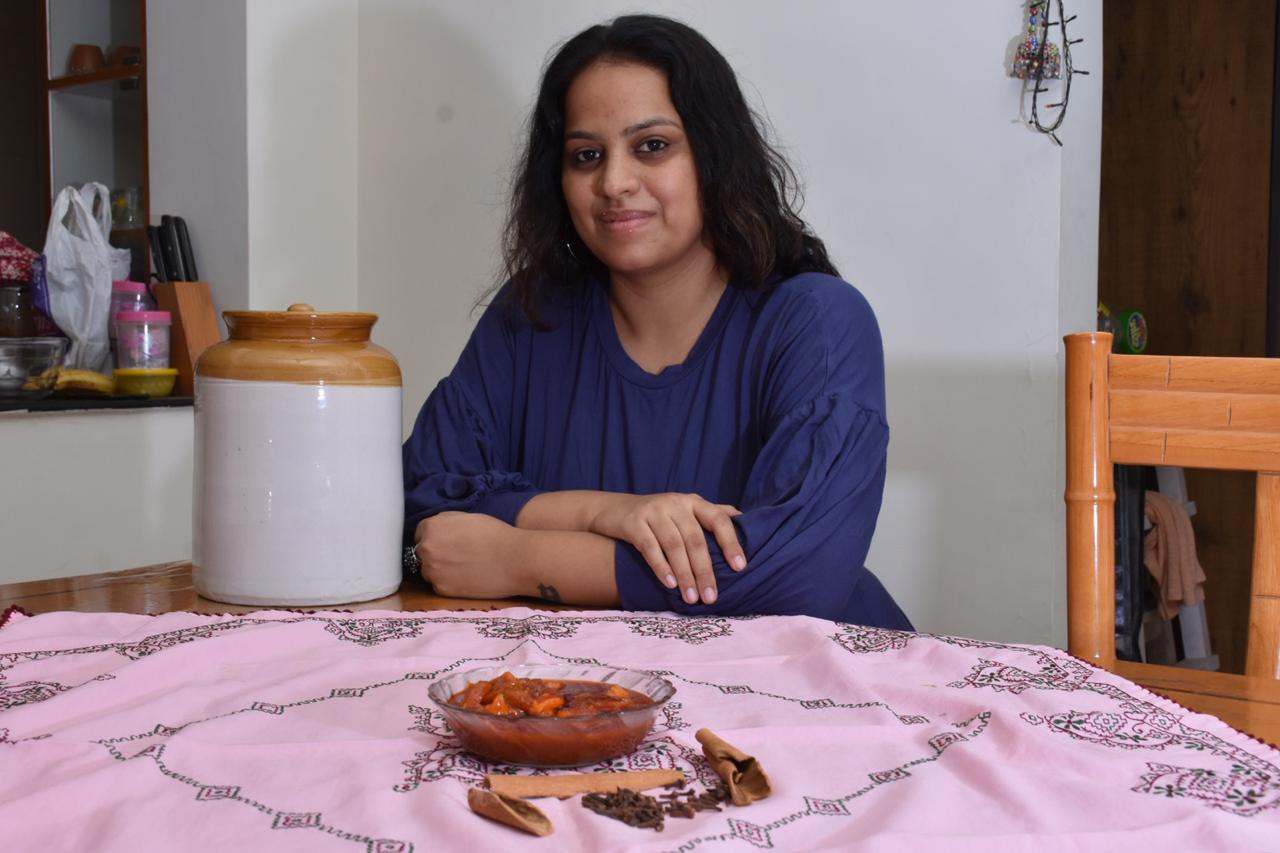





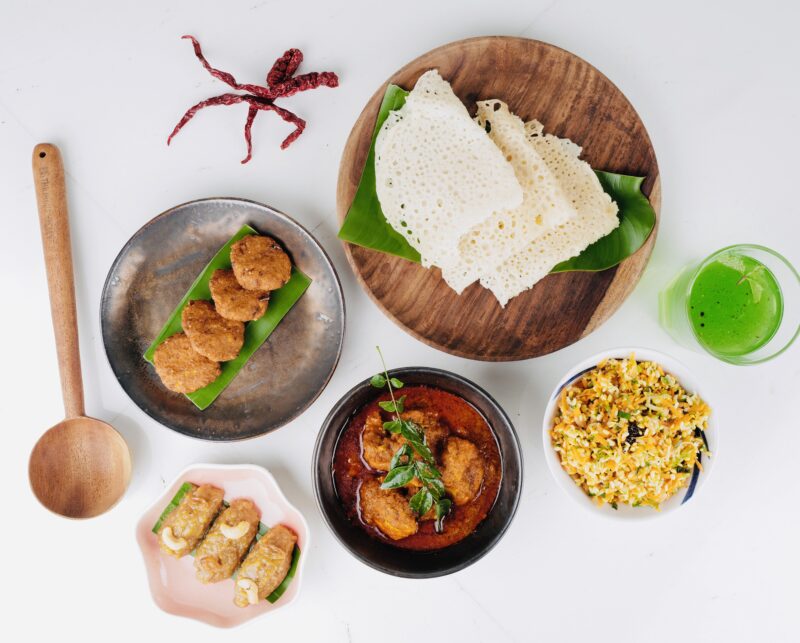
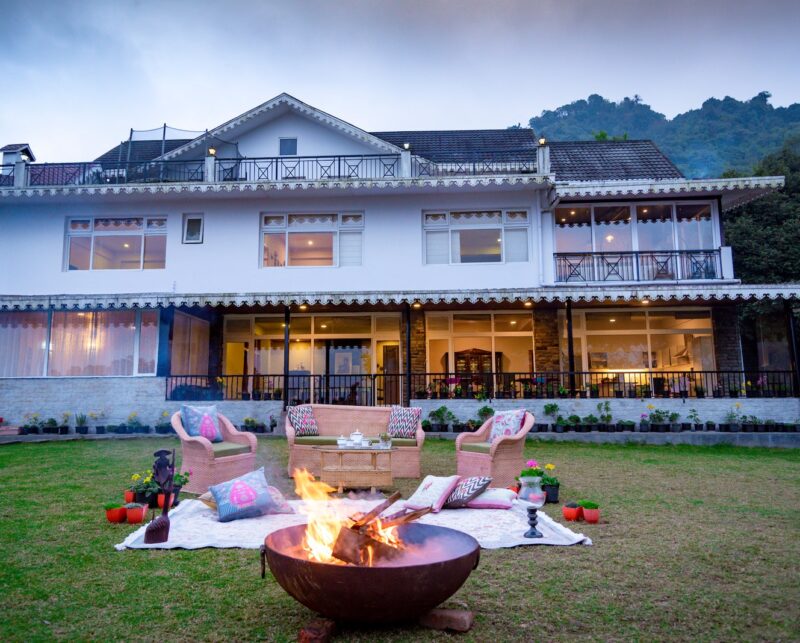
I am normally hunting for notice. This article gets me thinking. put you in my favorites